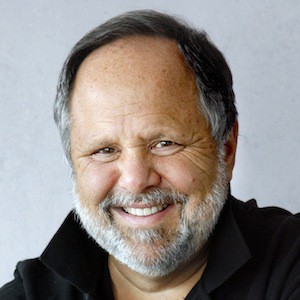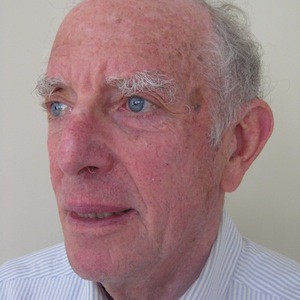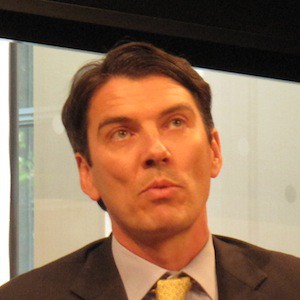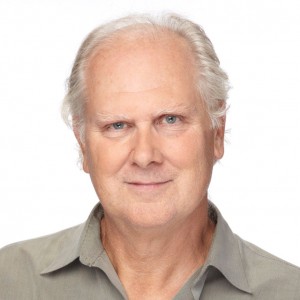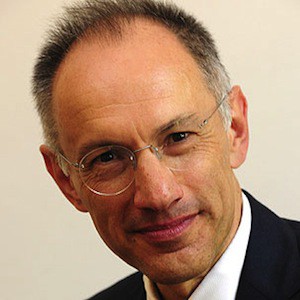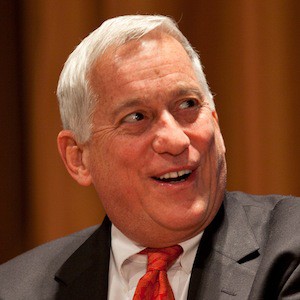Paul Sagan: All right. Good morning. It is March 5, 2013. We are in Cambridge, Massachusetts with David Graves. Thanks for coming.
David Graves: You’re welcome.
Paul: We’re looking at the collision of news and digital technology, focused a lot on the period of the Web, so 15 to 20 years ago, but with a broader path, really 40 years back to the early days.
David: Unfortunately, I can almost cover that period.
Paul: That’d be OK, but why don’t we start with a five minute resume, just with where you came into the picture and the places you’ve played and then we’ll get to the other things.
David: If I can remember back that far. Actually, my first ever paying job was as a newspaper photographer.
Paul: You don’t have to go back that far.
David: The Danbury News Times, which became a Dow Jones newspaper. That was only in high school, though. Actually, my first real industry job was here in Boston at WBZ, doing news and various things for the morning show and producing talk shows and so forth and eventually becoming assistant program manager. Moved on to KDKA in Pittsburgh for a couple of years, Chicago, WIND, did a headquarter stint.
This was all with a company called Westinghouse Broadcasting, Group W, which, in and of itself, is an interesting story in the broadcasting business. It is now called CBS, since Westinghouse bought CBS and changed its name in a reverse way to CBS.
Went back and forth, ended up doing some work out in our production company in the West Coast and got into television doing syndication, game shows, and talk shows. At that point, “John Davidson” was our talk show.
We tried to start a show called “This Evening,” which was an expansion of our half hour local syndicated show, “Evening Magazine,” into a national show. Nancy Glass was the host. It didn’t succeed, but we also did “Teenage Mutant Ninja Turtles,” which was an incredible success. I spent most of my time on the Turtle side because that was where the money was.
Paul: That may have been the end of journalism.
David: I have one picture of myself, somewhere, walking down the Croissette in Cannes with a Turtle.
Paul: That’s probably the one we want for the “Time” article.
David: If I can find that one. That was a great picture. I can’t remember whether it was Michelangelo or who it was. So, I did that. Then I made the first of my many mistakes and started a company called AdValue Media Technologies which was about the time, I think, I met you, Martin which was funded by Westinghouse and Cambridge Technology Partners, if you remember that company here in Boston. Its goal was to clean up the back room of the television business by connecting electronically the computers at the TV station with the computers at the advertising agencies.
We had tremendous support from the advertising agencies. Y&R and McCann were really strongly pushing this because they had a huge receivables problem, and so did the TV stations, actually. We tried to do that, but we ran into the rep firms who absolutely…I remember the guy who ran TeleRep telling me, “Dave, you have to understand. The television business is about creating discrepancies and cleaning them up. We sell ‘vaguely.'”
We didn’t succeed, but my company got bought by Reuters. I switched over and left that division and ended up in Reuters media, and spent the next seven years at a very good company. A lot of great journalists, and ended up running Reuters media globally, which was a wire service and a television service, and a picture service and new media.
During that period at Reuters, which we can get into, we created most of the products that online sites were using. We had by far the majority of them because AP was still conflicted by the newspapers not wanting them to jump into the new media space, and so they couldn’t sell to people like Yahoo.
Paul: But they did eventually.
David: Eventually.
Paul: It didn’t take too long, I don’t think.
David: It took them a while to come up with a plan. That’s a more detailed history, if you’re interested in it, of what happened with AP.
Paul: We could come back to that, but I think the Reuters taking wires and making it consumer available through Yahoo is one of the most important events.
David: It was, and it really happened. Just to finish off, I ended up at the end of the century going to work for Yahoo as head of media, so I was the first head of media for Yahoo. They had tried to get me to work there much earlier, and I couldn’t make the west coast swing because of my wife and family being on the east coast. I ended up commuting for a couple years, which wasn’t really very good, so I stopped doing that. Then the rest of it is not really media, so there’s no point. I did video, PermissionTV, which was a video technology company and not that significant, except for the fact that we ran through 18 million bucks in a startup. At Reuters, just as I was getting there they did an investment in a little…
Paul: What year was this?
David: This would have been ’93? It’s funny how vague you are about when you even went to work for places, but somewhere around there. We had just reached agreement. I think I hadn’t funded, but had reached agreement to fund, put a couple million dollars into a little company called Yahoo, pre IPO. As a concession for us doing this really risky investment, they agreed that Reuters would have exclusive rights to provide content to Yahoo for five years, in terms of what content we had. If Yahoo wanted a news product or a financial news product, they had to come first to Reuters and say, “Do you have this?” Then if we didn’t, then they could go buy it from someone else.
We of course, every time they came and asked for something, if we didn’t have it we figured out how to make it. “Oh, yeah, we have that.” It was like Staples. “Sure, we’ve got that.” Not everything, but we created things that we didn’t have before. US sports, and a lot of other things like that.
Basically, Reuters started off and we were very successful in terms of page views, but not money. Because the Yahoo deal was a rev share. Which I later learned, when I went to Yahoo was…
The way you do rev shares is you do rev shares until there’s actually rev, and then you change it to a license. Sorry, Martin, since you were one of those who would have suffered from that particular strategy. So we sold these online reports, which were 10 stories, that updated themselves. It was a kludgy, black tape system, but it worked.
We had our normal wire stories and then an online editor would pick 10 of then and put them in order. Then we would send out a file with the code numbers of those 10 stories, called a link file. When that hit Yahoo, Yahoo would rearrange the story on its front page and its news pages, according to our link file. So if we put in a new lead story, a big important story, it instantly, within seconds, became the lead story on Yahoo.
Paul: This is a very important development. Because I’ll ask the question not to bias the answer, try not to bias the answer. The web is uniquely tuned toward that kind of currency. No?
David: Absolutely. You couldn’t have a situation where there was a major story and you went half an hour or more without it showing up on the web.
Paul: But the newspapers, when they came onto the web, took their 24 hour cycle or many of them did and just put it on the web.
David: That’s where we get to the AP story. Just a brief aside. When AP finally could see it was a potential market for them that they were not getting into, they hated the fact that Reuters was all over Excite and Lycos and InfoSeek, everybody. We had the only product in town.
John: Everybody except AOL?
David: No, we had AOL before there was the Internet. But they also had AP. AP did sell to AOL, because that was the days before the newspapers had woken up and realized they shouldn’t be selling to AOL. Because it was a walled garden.
John: You were, in effect, programming the news?
David: Totally. There were only two news employees at Yahoo. One was a producer and one was a feed handler, a technician guy.
John: Explain the business rationale for Reuters doing this on a rev share. What was your strategy in doing this?
David: The strategy was that Yahoo didn’t have any money. We did own part of it. We wanted to see more value. But it was really more, Yahoo did all their deals that way for content.
Paul: Was there any discussion, ever, of charging for this content? Yahoo was free from the outset. They created, with you, this news service. Do you ever recall a conversation where Yahoo said, “Maybe we should charge for this?”
David: Not specifically for news. Let me digress back to the AP thing just to close that out. So AP finally got into it. But AP was taking their radio news reports that they were already producing and they were sending those out as their online reports. Well if, God forbid, somebody was assassinated at 31 past the hour, anybody using the AP reports wouldn’t have it for another half hour, until the next radio news report came out. When this stopped was…
Paul: The radio wire was really wire light?
David: Yeah. It was a story for five minute, rip and read newscast. That’s what they were using for their online report. What happened is, I went to Yahoo and AP immediately came in and asked for a big meeting saying, “Why aren’t you using more of our copy?” I explained it to them. I was the first person to ever explain it to, I think it was Ted Savage, or something like that. I said, “Because your stuff is a half an hour out of date.” He turns to his head of digital and says, “Is that true?”
Paul: Do you remember who that head of digital was?
David: I don’t remember. Maybe that was Savage and the person I was talking to was above Savage. I can’t remember.
John: You had a pretty robust financial report at that time.
David: That’s a whole other story about what we did there. Talk about cannibalizing. It caused a lot of controversy inside of Reuters. Anyway, what happened is AP said, “I want you to go to sit with them and figure out how to do this.” They changed their system so that they were contemporary. But that wasn’t until 2000, 2001. So up until that point AP had a very inferior product, from an online point of view. They still had this half hour lag until then. I’m sorry. I digressed.
John: I was just saying you had a very robust financial report at that time, because you were already competing with Dow Jones.
David: We were competing with Dow Jones and Bloomberg.
John: So Yahoo got all that?
David: Yahoo got more than many people at Reuters wanted them to get. We had a news service that went to the financial trading rooms that cost something like $1000, $1200 per seat, per month. We took a tremendous amount of that content and made it available through Yahoo Finance. In such a way that there were stories in Reuters, which were true, of people walking into trading rooms at Goldman Sachs and seeing a bunch of people with one Bloomberg terminal, one Reuters terminal, maybe a Dow Jones terminal and a whole room full of people looking at Yahoo, doing their trading. Which, inside of Reuters, we were not the good guys.
Paul: I want to return to this notion of willingness to pay.
David: Oh, I’m sorry. Yeah.
Paul: I’m hopefully going to get to somebody at Yahoo, at some point, to talk about this as well. But Yahoo today is, I believe, the largest online news service in the world. It has been for many years.
David: It’s almost always been number one.
Paul: Correct. So clearly the consumer was voting to say, “I like the most updated news” from the outset. You were a part of that. I’m just wondering the consumer says, “I like this product.” But Yahoo is saying, “Great, we’re going to make it free.” I assume, to get advertising?
David: Let’s take it in stages. For the first part of the Internet, your stock valuation was driven by your audience size. Because nobody was making any rational decisions about what things were worth, based on income or revenue or even [indecipherable 13:37] . So for some number of years and you could probably talk to Sue (Decker) or somebody like that, or anybody who was doing analyst work all you cared about was how many millions of people were clicking on Yahoo in a given month.
John: And the growth of that number. You were riding the growth curve. No matter how big it was.
David: 50,000 a day kept getting added. So Yahoo wasn’t going to do anything that was going to interfere with the metric that was driving their stock, which at that point, was audience. Certainly any kind of pay situation would have interfered with that thing. By the end of the century we were starting to focus on [indecipherable 14:17] . At one point I proposed, actually… We had a lot of flack from people about various things, internally, at Yahoo. At one point I said how many banners there were. People complained about that. I said, “Why don’t we offer a version of Yahoo for a buck a month that has no banners. Let them put their money where their mouth is.” Here’s what I was told. Yahoo’s media audience like almost every media audience, but more extreme than most was skewed towards heavy users.
10 percent of our users did 90 percent of our clicks at one point. The person who explained this to me said, “If any significant portion of them decides to opt for the one dollar, it will take so many page views out of our ad inventory.” Because you lose one person who’s doing 500, 1000 pages a month, it doesn’t take many of those people to reduce…
Martin: That was a large part of why the Times went metered, rather than walled.
David: Right.
Martin: The dollar is a money loser.
David: Yeah. That was their fear, that it would take out so many people out of the ad inventory. If you think about it, if you really were trying to please the advertiser, which I’m not sure anybody even still is today. But there’s a whole reach and frequency thing. Light users are really hard to reach enough times to make an effect. They may see one banner. One banner doesn’t do anything for you. You have to see something a number of times. Like a TV commercial. It’s well established in the ad industry, a metric which nobody can agree on, as to how many times you have to see something before you take action. It would really have put us in an unfavorable position, in terms of reach and frequency.
Light users who maybe came in once a month would see an ad once. So there were a number of reasons that were unfavorable, that we never charged.
John: Basically, at Yahoo, you’re saying that was never getting any traction. But what about at Reuters? When did this issue of, “Hey, we’re not…”
David: Immediately. New media steadfastly held them off.
John: So you had divided interests at Reuters? You had people who had invested…
David: You remember, the company’s really a financial news company. Their biggest businesses were foreign currency trading. Media’s a small part of that. But we happened to have a CEO at the time who was a great guy, who was a former journalist. So he had a lot of sympathy and interest.
Paul: Who was that?
David: Now I’m blanking on his name. We’ll have to look that up. An Englishman, of course.
Paul: You described a place where you had the minimum innovator’s dilemma. You had a little bit of cannibalization, but the least amount. Because the newspapers couldn’t do it. AP couldn’t do it and Reuters could do it.
David: And Reuters didn’t have any real US revenue. Didn’t have any US retail revenue. We had 20, 30 newspapers who were rich enough to have both wire services. We had NBC was our biggest partner. We sold all the TV companies at the time. CNN was a big customer, obviously.
Paul: But mostly to keep AP “honest,” probably.
David: Probably. And also for people who cared something about world coverage. If you were international you really wanted to have both Reuters and maybe Agence France Press. They balance out AP’s US perspective. AP would still put out stories, those days they would use the term, “abroad.” Which didn’t sit well with international audiences. “What do you mean, abroad?” Which to them meant, “Not in the US.”
Paul: Did you try to understand the audiences’ reaction to effectively free wires for the first time? Because readers got conditioned by what happened on Yahoo? Was there any understanding of that? Did you track that in any way or did it just happen?
David: I would say it just more happened. We had nothing to lose, at that point. It was a chance for Reuters to expand. We did end up generating substantial revenues, globally, with the online news reports. Because our strategy for sales was called “Yahoo envy.” We would create a product, put it on Yahoo and immediately someone would call us from Excite saying, “How come we don’t have that?”
Martin: Dave, in a funny way, I recall…
David: And we charged them.
Martin: …that you were, in a sense, the anti dot com boom. What happened is, you were actually making money. Which was a very unusual thing in that era. However, you didn’t have a consumer facing brand. You didn’t have Reuters.com yet. So everybody was saying, “They’re idiotic. They may be making a few shekels over here with Yahoo, but they’re sacrificing their ability to go directly to the consumer.” Eventually, Reuters did go directly to the consumer, through Reuters.com. When did that happen?
David: That happened more after I left. It would have been 2002 ish. I helped them build that site. There was a continual debate…
Martin: But it’s never really become a very big site.
David: No, and we never thought it would.
John: It has the same conflict that Bloomberg has. They’re under pressure not to break news that comes up that’s proprietary on the data. And their newspaper clients are also jealous what they distribute.
David: Yeah, but the newspaper clients aren’t really relevant. Outside the US, maybe. But not in the US.
Martin: I think this is a key question.
John: But I tried to do a deal with Reuters and the newspaper clients ended up being the people who blocked it. Just because…I don’t know.
David: I’m surprised. We did the deal with Dow Jones where we put our archives together.
Martin: This is a hypothetical and I don’t love these kinds of questions, but I’ll ask you to go down this road for just a moment. Had you not taken the quick money from Yahoo and built Reuters.com in 1993 or 1994, could it have become Yahoo Finance? Or didn’t you have the culture inside of Reuters to do that?
David: The answer to the first one is, who knows? There are those who wanted to do that. In fact, I was more in that camp. Because I came from the retail world. I was in broadcasting. I was consumer facing. But remember, Reuters was a wholesale operation in the media business. Nobody in the media business was retail. They’d always sold their pictures to newspapers and magazines. They’d sold their wire services to newspapers. Their television was uplinks and reporters. We sent raw footage that NBC and others, NHK, edited into pieces with their own reporters in front of it. So media was geared toward wholesale. So they were most comfortable with the wholesale approach, even to new media.
Martin: That’s where I sense a bit of the innovator’s dilemma is. To think that they couldn’t view themselves…well, that’s not quite the innovator’s dilemma.
Paul: It’s reverse. It’s what freed you, I think at Reuters, to go do these deals no one else would. Because you never saw yourself as a retailer. Or Reuters didn’t.
David: Right. We didn’t see us as competing against ourselves.
Martin: But in a funny way, they became the Craigslist of news. Only in the sense that Craigslist gave away classifieds. These guys are now, for pennies, giving away news. And it’s just the kind of news people want online. Because it’s current, quick and…
John: As I recall, Yahoo did something that Reuters wouldn’t likely have done. Correct me if I’m wrong, but Yahoo quickly began building all these user tools, where a retail customer could go on Yahoo, you have the news. You have the data. But then you could design your portfolio. They were the first people to do that.
Martin: They were the best at that. But that’s why I asked whether Reuters had the culture to develop software in exactly the way you just described. This is a key point that you’ve just made.
David: We were used to building terminals. That was the expertise, to compete with Bloomberg. Not websites.
John: You guys put insider trading…you could call up your stock. You could see who was selling.
David: There was a key guy who engineered this at Yahoo, from a product point of view. I was the person on the Reuters side, running interference. Guy named John Briggs. John really was Yahoo News. He’s the one who thought of all these clever things.
Paul: When did you go to Yahoo?
David: In the end of 99.
Paul: So everything was established at that point?
David: Pretty much. The only thing that I had some influence on was moving us toward personalization more aggressively.
Paul: But My Yahoo already existed?
David: My Yahoo was run by the engineering group. I had continual battles with them. Because I didn’t control it completely. But an astonishing fact was, very few people personalized their news. Very few people took the time to change the My Yahoo page from whatever it was when they started it. I realized that, in order for that to work, what you had to do was give them 30 My Yahoo’s. Are you a sports person who also likes, blah blah. It was, make the customization almost pre formatted. They never did it. It didn’t really become a factor.
Paul: So it wasn’t even that people could get all the wires and they’d spend some time customizing their news. It was simply you could get commodity headlines?
David: Yeah. You could get what you needed.
Paul: What you wanted in a simple format.
David: And have confidence that they were the latest news.
Paul: And it was free.
David: And it was free. Once it started being free, getting someone to pay for it was more difficult. To look for higher value…we did go into a mode, in 2001, when Terry Semel got there, where they wanted to find pay things. [indecipherable 24:54] . For instance, that’s when we introduced a pay service for Yahoo Fantasy Sports. In a minute we had 35,000 people paying us 30 bucks a month. We had a free service, but then there was a better service. That’s the way a lot of companies, particularly Yahoo, tried to introduce pay elements. By putting something that cost, that was better on top of something that was free. That’s still a model that…
Paul: That was the first freemium, at scale?
David: Yeah.
Paul: Get a big audience with a free taste, up sell. But in terms of the change in the news business, it really happened 93…
David: Yeah, in that area.
Paul: When was the first wire license and when would it have gone online?
David: It would have been Yahoo and it would have been 93, 94.
Martin: Yahoo was founded in 94, I think.
Dave: No, I think it was before it. They were up as a search. Remember, Yahoo was not a search engine. Yahoo was a directory with a bunch of editors. 300 people serving the web. I’ll have to check my employment dates. I was working at Reuters when Mozilla came out. So they couldn’t have been up with the news before that. It could have been 94.
Martin: It was.
Paul: That would be key. So even by 98, 99, by the whole bubble frenzy, this was all set.
David: Oh yeah.
Paul: Let’s talk about the proprietary services that came before and were really pushed out.
David: There was, of course, AOL.
Paul: And Prodigy and CompuServe, too.
David: Prodigy, CompuServe, Delphi. Remember Fox’s first foray into…
Martin: [inaudible 26:36] ‘s company.
David: Right. That’s about it, of any significance.
Paul: How do you think about placing them in the changing of consumer behavior? Because people paid for dial up and communication, email. The news came free. Especially when they went to the all you can eat model. There was no question of how long…
Dave: Yeah. AOL never charged for news, per se. They just charged for access.
Paul: Did you license to them too?
David: Sure.
Paul: And AP licensed to them. So some of this habit was set.
David: AP and Reuters both licensed to AOL from well before I got there.
Martin: Did you license to CNN?
David: Yes.
Martin: OK. So there’s also that. CNN has come online. Certainly prior to 95 percent of the newspapers. They’ve come online with a free service, also very updated, also with Reuters news.
David: They canceled Reuters at one point.
Martin: OK. But I think CNN quickly became second to Yahoo as the largest. And then, of course, MSNBC came up. You were licensing to them as well?
David: Of course. We made a proposal to Microsoft to run MSN News. They’d built this cool newsroom in Seattle and we were going to staff it. Then they did the deal with NBC.
John: CNN had offered Dow Jones and Bill Dunn, back in 1980, the right to be responsible for the whole financial…before the FNN thing. They would have ended up being partners. But Dow Jones turned them down. They said they didn’t partner.
Martin: We spoke to Roger Fidler yesterday, who was at Knight Ridder. He wasn’t part of Mercury Center. But Mercury Center, if you’ll recall, was the first newspaper news service. One was AOL and then they pushed…
David: San Jose Mercury News.
Martin: It actually started as a paid service, believe. At something like $4.95 a month. They abandoned that after about 18 months. I assume that part of that must have been from pressure coming from guys like Yahoo, CNN all going free. But we’ll clarify that with Tony Ritter when we talk to him. But that’s also happening in this time frame.
David: I would take the position that news has always been free. No one’s ever paid for the news. My position has been that people paid for classified, the weekly supermarket ads that showed you what the specials are. They paid for car listings when they wanted to sell or buy a car. They paid for real estate ads, to see their own house for sale or to buy a house. These are all these things they paid for. And there was a habit. They paid for the fact that there was a piece of physical paper that someone had to get to them for those things. But there’s no way to unravel the two. Obviously, people enjoyed getting the news and they read it. In terms of the economics of the newspaper business, as we always understood it, as I understood it, something like 80 percent of the profits of American newspapers came from those other things. Only 20 percent of it came from profitable news, if that. In other words, if you could eliminate the entire news cost, newspapers would have been much more profitable on their classifieds and their display ads.
John: In fact, the traditional percentage of expenditure by American newspapers, even the quality newspapers, the percentage that they spend on editorial product is much lower than people think it is. Dow Jones, at its height, was spending less than five percent of the budget. I don’t know what The New York Times number is. But it’s low, relative to printing, paper…
David: And they’d probably be the highest of anybody.
John: …sales. It’s low. Fidler made the same point you made, yesterday in a different way. He said, when they put up the first online product I thought this was very interesting they were all excited about it as a news product. It wasn’t online. We’re not talking the Internet. We’re talking TeleText.
Martin: Oh, way back in video text.
John: When they first did Viewtron, people really liked to do things on Viewtron. But the news was not…
Martin: They’d liked to send email.
John: They liked to send email and play games.
Martin: And the auction. Which was the precursor to eBay.
David: That’s what it is. Newspapers were eBay. They were jobs. They were Craigslist. They were all those things. The news came along for free.
Paul: Marry TV into that. Broadcast was free for people. Cable was a little bit this other model pay for something, but probably not news. Do you have a thesis on how that played into people’s psychology as it went to the Web too?
David: First of all, the television experience on the Web. It can be really good today, but for most of the period of time, certainly in the ’90s, it was a bad experience both because of the mistakes made and the people doing it. This is where my PermissionTV side comes out. Even today, many services not something like Hulu, which is really well done are either too small or too big. Meaning, the people who do the technology allow you to make a window this big which many people find not really like television, but it’s high quality because it’s small or you hit a button and go full screen and it pixilates. It looks terrible.
I don’t know what the percentage is, because, obviously, bandwidth keeps increasing, but the fact is that for all of the ’90s, you had a choice between a small good picture or a large bad picture. It didn’t really feel much like television to someone trying to watch it. That helped television to some extent.
The other thing about television is that it’s basically radio. We did a study at Westinghouse in…God, it had to have been in the ’80s sometime, when we were thinking of buying this really expensive weather software it rained, snowed, and did all sorts of cool things in Philadelphia. We hired this company that was one of the companies that goes into the house and actually watches what people do, to do the research.
What they found out is that most people watching the early news were women who were making dinner, listening to it on a black and white television this big and listening to the soundtrack. Which is when the mandate at Westinghouse went out saying all our anchors have to sound like radio guys, because not that many people were really paying that close attention to it.
I don’t know if that’s relevant, but television had certain built in protections against being cannibalized by the Internet, certainly through the ’90s.
[inaudible] When Google came along and then bought YouTube, it seems to me, Google didn’t do anything to print news that Yahoo hadn’t already done. They just did things to Yahoo with their news. They attracted more advertising.
David: Their news was never about…
[inaudible] It was aggregated.
David: Yeah. They never say themselves as a content company. They keep denying they’re a content company. Everybody keeps trying to say, “You are a content company.” They still pretty much aren’t, although YouTube is paying for some content to be created. They didn’t want to ever get into that battle where they saw Yahoo starting to pay for news. Yahoo pays seven figures to the news companies for the raw materials. They don’t do rev shares anymore.
John: And they pay for their own original content [inaudible 34:30] .
David: Of which there isn’t that much of it.
Paul: Less and less, I’d say.
David: If you remember, there was a guy named Lloyd Braun, who eventually had my job at Yahoo after I left. Maybe there was one guy in the middle.
Paul: They all left.
David: Lloyd engaged on an aggressive path of doing things.
Paul: Santa Monica.
David: First of all, he tried to move all of Yahoo to Santa Monica and duplicated a lot of functions in both places. He had some aggressive ideas and got together with Mark Burnett. They signed this one big deal with Mark Burnett that was, I forget, about a $10 million deal. At which point the stock analyst landed on Terry and said, “Wait a minute. Do you guys want to have the stock ratio multiple of a media company? Are you a media company, and you’re going to have the same kind of ratio of EBITDA to stock price as like CBS?” At which point Terry said, “[sound effect].” That deal was killed in two weeks, and it wasn’t that long after that…
John: Now, last week his old partner, Lloyd’s old partner Susan Lyne was hired as the head of AOL brand.
David: I know. I saw that.
John: Here comes a content person.
Paul: I want to go back to something John raised before, because it’s a really critical issue with respect to where the value was created early on, and that is this notion of adding functionality to the content. There are really two roles here. One is content creation, which is what Reuters did. The other is software development, which is what Yahoo did. What it seems to me Yahoo managed to achieve with Yahoo Finance in particular was they get this content from you, which is after all very, very costly to create…
David: And invaluable.
Paul: For not a whole lot of money, and then they overlay their engineering talent over that and create something that builds to a massive audience very, very quickly.
David: Don’t forget the stock quotes, too. We weren’t doing just US stock quotes. We had stock quotes from each exchange. I’d get calls in the middle of the night from our Reuters person in Hong Kong saying, “You’ve got the Hong Kong prices up in real time. What the hell are you doing?”
Paul: Where I’m going here, Dave, is it seems to me that whether it was newspapers, broadcasters, cable providers, anyone in traditional media could do the expensive stuff. They could create the content, but they didn’t mostly have the DNA to create the software.
David: Well, you remember the New Century Network?
Paul: Yes. Well, that was an attempt to create national scale across the newspaper industry. I’m actually going somewhere else, which is software development.
David: Right. Well, I thought that was part of their mandate as well, is to build the stuff for this company.
Paul: Maybe it was, but I guess the question I’m asking is could or did you see in any of the partners that you sold to on the media side any kind of software creation capability? In other words, was anyone at that period of time making an attempt to compete with Yahoo on its own terms?
David: I didn’t think of it as a software issue, I thought of it more as a business issue. In other words, things like deciding that only the newspaper would go up the way it was when it was printed was not a software problem. That was a business decision that we’re not going to update it every minute, or we’re not going to…
Paul: That was. That’s on the content side. What I’m saying is that Yahoo overlaid a great deal of functionality.
David: Some functionality. But I will tell you that most people got their news from going to the Yahoo front page and seeing the headlines. Finance is different. Yahoo Finance clearly made its reputation on…
Paul: That’s what I’m focused on.
David: Bloomberg was totally against the Internet at that point. I remember him telling me how much he was against the Internet.
Paul: When you say “against,” do you mean that he didn’t take it seriously?
David: He didn’t want Bloomberg terminals being cannibalized by going on the Internet. He thought what Reuters was doing was stupid, with Yahoo Finance.
John: There are still people at Bloomberg who have that position today.
David: I’m sure. And there are people at Reuters who have pulled back. There’s a lot less Reuters financial content on Yahoo today than there was when I was there. In other words, we had to create the technology to filter out the stuff that was high value to traders, or delay it, so it wasn’t tradable.
John: The other thing that was going on at that time, that we forget about, we want to forget about, is that in addition to the boom of the Internet, and partly because of the boom of the Internet, everybody in America at that time thought they were a trader. Yahoo had created a platform where everybody was a day trader. People quit their jobs and became day traders trading Internet stocks.
David: That’s true. I don’t know how many it was. But I’m sure it was a lot.
Paul: That worked until March, 2001.
John: Yeah. And it never came back.
Martin: But getting back to Finance for a moment, there were a number of traditional media brands out there. Whether it was Wall Street Journal… CNBC, a brand we talked about before, perfectly positioned to be the Yahoo Finance of TV, could never quite figure that out. We’re just trying to understand why, Dave. We’re trying to understand why an upstart that started in 1994 takes over the financial news business within five years.
CNBC, The Wall Street Journal and others have relative to the audience size, de minims audiences online.
David: I think it’s three things. One is, there were some really clever people at Yahoo, including this guy, John Briggs. And there’s another guy who now lives in Spain I’m trying to remember his name who thought of a lot of these things and just went out and did them. Like the things you see on Yahoo Finance. Two, they were first. Which is a really big advantage. Not only were they first, but they were really good and they had good information. They had the stock quotes. You could buy real time. You could do this. Certainly, you could get all the same stuff that someone was trading on at Goldman Sachs. You could get either immediately or shortly thereafter on Yahoo.
If you weren’t doing the kind of trades that needed seconds which is a particular kind of trader most people’s trading is less frenzied than that.
Martin: I think, fundamentally…
David: It worked.
Martin: …it worked, because they understood the guts, the format, the clay of the web. Whereas the other guys didn’t.
David: They built a lot of clever applications, by people who had a sense of what a financial user online would want. Technicians can be hired by anybody. Any of those other companies could have looked at Yahoo and completely duplicated what they did.
Martin: But they didn’t.
David: That seems like a business decision, more than a technology decision. I’m not sure. That’s a good question.
John: At money.com, which back then, remember when people used to think a great URL was worth something?
Martin: I think it still is.
David: It still is. There’s a guy in Hong Kong who owns them all and they’re all $5000.
John: We had one called money.com. That one, theoretically, should have been a good one.
Martin: Good at finance.
Paul: But it was programmed like a magazine.
John: It was programmed like a magazine. We set out to try to copy Yahoo. We hooked up with Intuit or Quicken. We looked at all that. This would have been, I don’t know, 97, 98. I’m like you. I can’t…
David: Yeah. It’s hard to pin down the exact…
John: Some people can sit here and be like…
David: I should have saved all my calendars.
John: …on August 10th, 1992 we made the decision. I have no idea, but somewhere in there…
Paul: It was at least 98.
John: It was, like, ’98, we put forth a proposal that said, “This is what it will take top catch up with Yahoo and compete in that way. It’ll cost about $80 million to get the traffic and all that.” Of course, they said. “Forget it.”
David: It was half owned by Hearst, too, right?
John: No, not money.
Paul: SmartMoney.
David: Oh, SmartMoney, right.
John: SmartMoney. We were the competitors. We were the 800 pound gorilla. The compromise position in the end was we ended up merging with CNN.com into CNNMoney, which was the tail of CNNfn when the network died. There were a lot of networks that died back then that ended up becoming dot coms. CNNSI was a network that died and became a dot com. CNNfn became CNNMoney. Once we had that scale, they were able to invest in some of the functionality that Yahoo had, but Yahoo was so far ahead of everybody.
David: I spent my life in radio, either being the number one station, like at BEZ or KDKA, or in Chicago chasing WGN. What you find is, consumer habits are really hard to change. Even if you offer even a slightly better service than what they’ve been doing for some period of time, it’s really hard to get people to change their habits. People talk to me even today about starting a website and blah blah blah. I say people look at seven websites. You look at your websites in a given week, you look at the one that comes up as your start page if you have a start page, which most people do, and you look at maybe a newspaper you look at the “New York Times,” in my case. Once in a while, I think of looking at the “Wall Street Journal.” Less so since…
John: But you have to pay for…
David: Well, I pay for it. I pay for the “Times.” I get the paper version of the “Times.”
Paul: Thank you very much.
David: You’re welcome. I do that primarily because…
John: [inaudible 44:49] to deliver it.
David: I did that for you more than anything. Somebody has a sports fantasy site. And that’s it!
Paul: You’re actually describing this goes back to TV and…
David: And radio.
Paul: On TV there are 500 channels, and people have eight.
David: And you have three radio channels. You have your news, information, and traffic channel, you have your primary music channel, and you have the music station you listen to when there’s a commercial on your other station.
Martin: I think there’s a huge difference here. The difference is this. The software, whether it’s mobile Web, whatever it is, allows for the aggregation of all these sources. While it’s true that you may only have one news source, that one news source may be aggregating 3,000 news sources.
David: Oh, yeah.
Martin: You’re correct in saying that Yahoo began as a directory and not as a search engine. That’s absolutely true. But what it seems to me has evolved since Yahoo is the notion of general aggregation in news. Therefore, a lot of people get their news not from a primary source like the “Wall Street Journal” but from a source like Clipboard or a source like…whatever it might be. Well, Google News, obviously.
David: Some people get their…Wheeler claims to get his news from Twitter.
Martin: That’s a great example of a highly aggregated social news service. The technology issue I think we have today is that the source is becoming relatively less important to people than the aggregated overlay to many sources. You’re correct in saying that personalization never took over, but the question is whether Twitter is a kind of personalization.
David: It is.
Martin: It’s a kind of social personalization.
David: We experimented with Reuters very early on. We got this guy actually from Harvard who was a physics professor or somebody. Came to us with this product. It took our online reports I don’t know why we didn’t follow through with this; I guess because we didn’t have a retail mentality and it showed you an equal sampling of all of our online reports international, national, sports, business on a page. As you read it, it kept track of what headlines you clicked on. It slowly expended the sections that you clicked on more frequently and diminished the ones you didn’t click on. Over time it would have grown into something that more accurately reflected your interests. Maybe you’d see six headlines of international news if you were commonly clicking on international stories or whatever it was.
That was a form of personalization I still haven’t seen anybody do really well. People talk about Amazon. “You bought this. You should buy this.” Amazon thing is still not that great, to be honest with you. I buy everything at Amazon.




